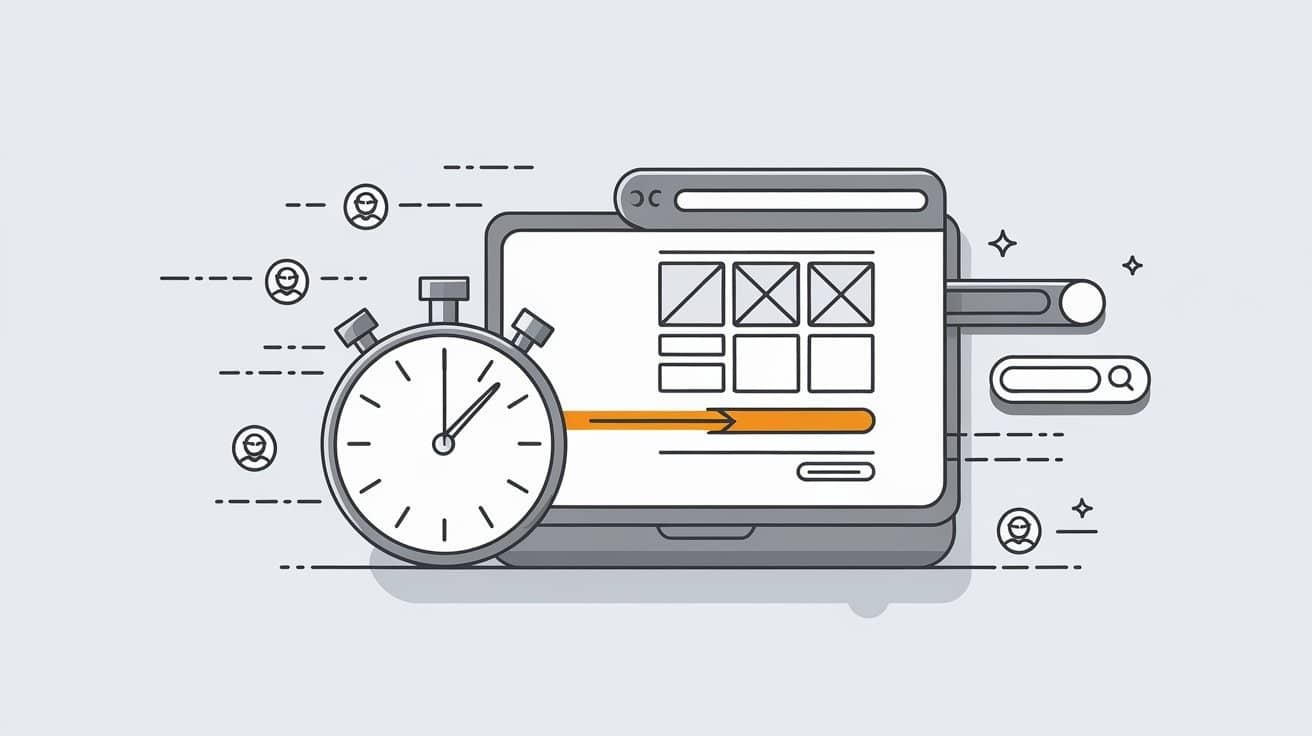Website speed plays a critical role in user experience, affecting everything from page engagement to overall satisfaction. Here’s a detailed breakdown of how speed impacts various aspects of user experience and business performance:
1. First Impressions and Page Load Time
Speed creates the first impression a user has of your website. According to research, users form an opinion about your site within the first few seconds, and a slow-loading page can instantly lead to a negative perception. In fact, 53% of mobile users abandon sites that take more than 3 seconds to load. Fast websites, on the other hand, encourage users to stay, explore, and interact more with your content.
The importance of this first impression becomes more evident when considering bounce rates. A slow website results in higher bounce rates, meaning users leave after viewing only one page. Google has reported that a 1-3 second delay increases the probability of a bounce by 32%. The longer the delay, the worse it gets.
2. User Engagement and Interaction
Speed influences the depth of user engagement. Websites that load faster allow users to navigate smoothly from one page to another, making it easier to explore more content, complete forms, or make purchases. A Google study shows that users who experience fast websites tend to have longer sessions, higher conversion rates, and more repeat visits.
Engaged users are more likely to subscribe, share content, or purchase products, contributing to your website’s overall success.
3. SEO and Search Engine Rankings
Website speed is also a critical ranking factor in search engine optimization (SEO). In 2018, Google introduced PageSpeed Insights, a tool that emphasizes the importance of page speed for both desktop and mobile search results. Websites that load faster receive higher search rankings, improving visibility and organic traffic.
This is especially important for mobile users, where speed has an even greater influence. Google uses a mobile-first index, meaning it primarily uses the mobile version of the content for indexing and ranking. Ensuring your site is optimized for speed can lead to better SEO performance and increased traffic.
4. Conversions and Business Outcomes
Website speed has a direct impact on conversions. For e-commerce websites, a delay of even a single second in load time can cause a 7% reduction in conversions. This could translate to significant losses in revenue. For example, if an online store is making $100,000 a day, a one-second delay could potentially cost it $2.5 million in lost sales every year.
A faster website improves trust and encourages users to move forward in their purchasing journey, reducing the chances of cart abandonment and missed sales.
5. User Satisfaction and Retention
User satisfaction is deeply connected to how fast a website operates. A slow website leads to frustration, especially if users are trying to complete an urgent task, such as finding information or making a purchase. Poor experiences discourage users from returning to the site.
A positive user experience, created by quick load times and responsive design, increases the likelihood of users revisiting your website. They’re also more likely to recommend your site to others, boosting your referral traffic and reputation. 47% of consumers expect a webpage to load in two seconds or less, showing just how critical speed is to maintaining high user satisfaction.
Factors Affecting Website Speed
Understanding what impacts website speed is key to making improvements. Several factors can affect how quickly your site loads, including:
- Hosting provider: A reliable hosting service offers better speed performance. Choosing a provider with adequate server resources is essential for fast load times.
- Image optimization: Large image files significantly slow down page load times. Compressing and optimizing images without sacrificing quality can greatly improve speed.
- Code minification: Removing unnecessary code, such as excess JavaScript or CSS, can help your website load faster.
- Browser caching: Caching stores parts of your website in the user’s browser, so repeat visitors experience faster load times.
- Content Delivery Networks (CDN): CDNs distribute content across servers worldwide, ensuring faster delivery of your website to users in different geographic locations.
For more insights on optimizing your website speed, visit Google PageSpeed Insights.
Improving Your Website Speed
To boost your website’s speed, consider these steps:
- Upgrade Hosting Plans: Opt for a hosting plan that offers better resources, such as SSD storage or dedicated servers, to handle traffic efficiently.
- Optimize Images and Media: Use compression tools like TinyPNG or JPEG-Optimizer to reduce file sizes without compromising image quality. Ensure video and other media elements are properly optimized for faster load times.
- Leverage Browser Caching: Set up browser caching to save static content, such as images and CSS files, to users’ local storage, speeding up repeat visits.
- Use a CDN: Employing a CDN, such as Cloudflare, helps distribute your site’s content across servers closer to the user, reducing load times.
- Minify Code: Simplify the website’s code by removing unnecessary spaces, comments, and extra lines of code to make the website lighter and faster.
Conclusion
Website speed is a decisive factor in ensuring a positive user experience. Fast websites improve user engagement, retention, SEO rankings, and conversions. By optimizing your site for speed, you not only enhance your visitors’ experience but also increase your chances of achieving business success. To evaluate your current website speed, start by testing it using Google PageSpeed Insights and identify areas for improvement.
Speed matters — don’t let your website lag behind.
Contact us if you need to boost your website speed.
